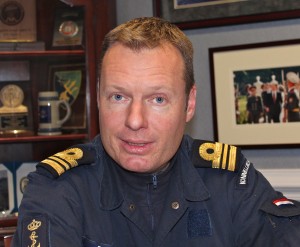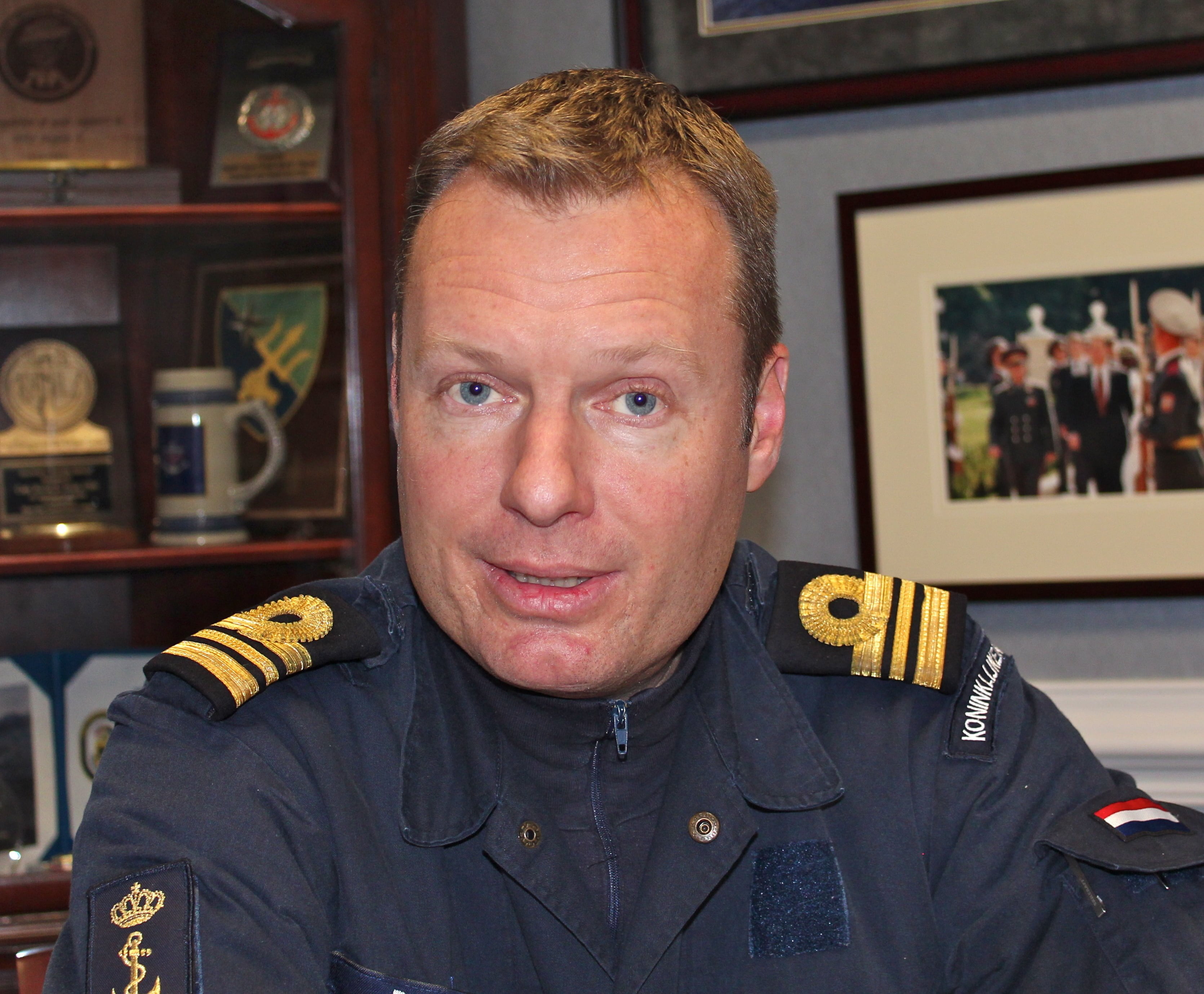01/26/12 During the week of Second Line of Defense interviews prior to the beginning of the Bold Alligator 2012, Lieutenant Commander George Pastoor provided a unique coalition perspective. Pastoor is a Dutch Naval Officer with Expeditionary Strike Force 2 and the lead planner for Bold Alligator.
SLD: You are a Dutch Navel Officer, and you are the Chief planner for Bold Alligator 2012. How does that work? You’re fully integrated into the process, and you’re a coalition partner, but it’s a very different way of looking at coalition partner in terms of this whole exercise.
Pastoor: I’m basically on the inside, as I am a Naval Officer embedded in the Expeditionary Strike Group 2 staff, as well as coalition member, and so I’m seeing the process from both sides. I’m on the receiving end on one side, and I’m on the giving end on the other side as being the developer of the operations and the plans.
Coalition is a key part of Bold Alligator. It’s been there from beginning. From the very first concept development conferences in the beginning a year ago, coalition engagement was central.
Nowadays operations aren’t done without coalitions. The Bold Alligator process is U.S. and coalition as one team from beginning onwards. It’s really working well, getting to the same goals, doing the planning process together, working in close coordination with the French Task Group, having their plan’s over, having 6 to 10 officers from New Zealand flying in for planning conference.
We have a lot of coalition participants in our staff for the operation itself really emphasizes the importance of coalition.
It’s also been laid down on us from higher command levels that we need coalition at the center of the operational concept, and we want to have them as equal partners and as integral team members.

SLD: This exercise is about innovation in the use of the seabase and indeed is a rethinking of maneuver warfare from the sea and supported from the sea. What are you going to take back home from this experience?
Pastoor: The big lesson learned is that nowadays operations are combined and joint. They are combined in the sense that we need other nations to participate, and to reach the same goals. To reach our ultimate goal in a war, or in a land operation, we need Air Force, Marine Corps, Navy, and Army assets available to the operation.
And that’s something I will bring back to the Netherlands. We are a very small country, and we can’t do things alone. We either work in NATO or we work in a European concept, but we also need to have our own forces work more closely together.
We are buying the Joint Strike Fighter. It’s not for nothing that is called joint; it is a weapon system, which can be leveraged for each and every service in my country. So that’s one of the things I will take back.
SLD: Things like the Joint Strike Fighter or the coalition approach to the Expeditionary Strike Mission requires information sharing, but there are still barriers that have to be overcome.
We’re going to have make more progress of information sharing.
Pastoor: From high-to-low, everyone feels like we need to share information, and we need to plan together. Therefore you need to know what the other one is thinking and what information someone has. Not on one side, but also on the other side, so it’s give and take. And from high-to-low, we all know that we need to share information in order to get through the process, and it’s been done well.
We’re using Centrix as a medium to communicate with the coalition forces. Everything we make on the SIPERNET, on the secured sites, we’re going to mirror, and release to the coalition forces as appropriate. After all, it’s an un-classed exercise.
The majority of the operations, we create takes place on the SIPERNET side. What we all know that should be releasable to the coalition forces. And everyone’s working hard to get through that process, mirroring everything on Centrix, making sure that each and every message we’re going to send out is also releasable to the coalition forces. We must do that, and we are doing that. Otherwise, you’re failing the operation.


